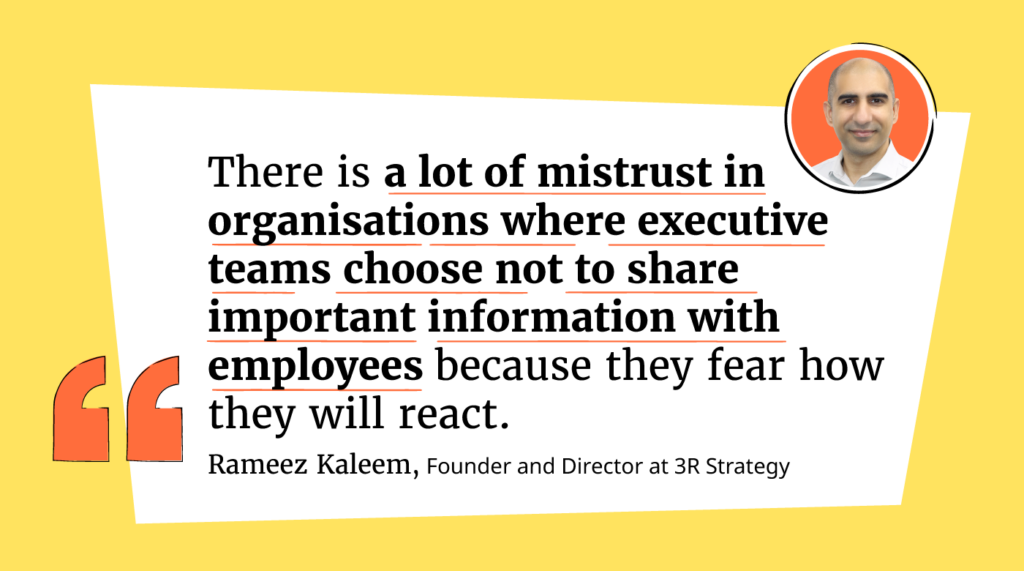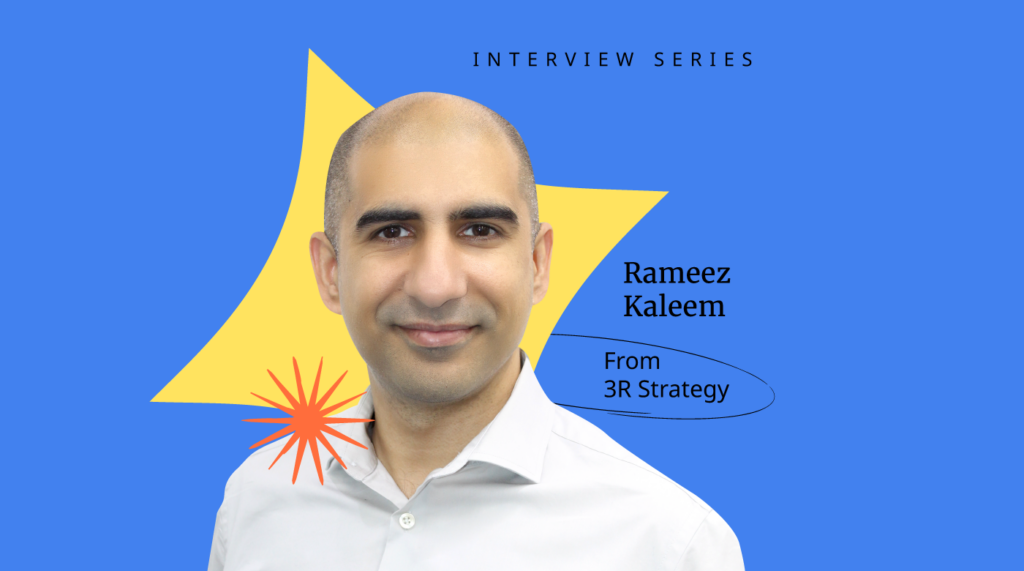We’re passionate about the world of work, and how we can make it better. To help satisfy our curiosity, we’ve launched an interview series where we pick the brains of experienced leaders, business owners, managers, and individual contributors to get their thoughts on how we can collectively build better workplaces.
We’d love to get to know you a bit better, tell us a bit about your backstory.
I graduated in with a degree in economics and, like many people, I wasn’t sure what I wanted to do. After applying for lots of jobs I ended up working as an HR consultant.
Firstly, I worked in global mobility and then moved into wider pay and reward consulting at Willis Towers Watson (Towers Watson at the time). After a few years, I wanted to experience the client perspective, so I moved into an in-house role with one of my clients.
Eventually, I grew disillusioned with the workplace culture I was experiencing. Films like Office Space and Jerry Maguire, while funny, paint a realistic picture of the toxic work environments that many of us face. Now I find myself on a mission to help organisations build cultures where colleagues trust each other and collaborate—rather than competing with each other.
If we were to ask a friend to describe your personality to us, what would they say?
My friends would describe me as someone who is ambitious and driven to make a difference while sticking to my values. They might also say that I’m easygoing and don’t take myself too seriously!
Thinking back to your career journey, what’s an interesting story that stands out?
I once took a new job and it was clear from the start that I had been misled about the company culture.
For example, we were expected to come in early before the leadership team arrived; arriving after them was seen as a sign of disrespect. It was a toxic work environment, and, against the advice of those around me, I decided to quit during my probation period.
I’m glad I had that experience because it made me realise that life is too short to put up with a job we dislike. We shouldn’t persevere or worry it will look bad on our CV. This experience was what ultimately led me to found my own company, helping organisations create cultures of trust in which people can thrive
What’s the most impactful lesson you've learned over your career thus far?
I tend to read a lot. One book that’s strongly influenced my thinking and actions is Talent is Overrated by Geoffrey Colvin. It’s the idea that greatness, and our capacity to excel, aren’t dependent on inborn talent but deliberate practice and intrinsic motivation.
We’re all capable of improving our ability to create, innovate and achieve great things.
Thanks for giving us some insight into who you are! Let’s jump into things. When you hear the phrase “build a better world of work”, what comes to mind?
The title of my book is A Case of the Mondays and that’s what comes to my mind when I hear the phrase “build a better world of work”.
It’s a world where people don’t have the Monday blues and dread going to work on a Monday morning. Instead, they look forward to the week ahead and meeting their colleagues—in person or virtually.
That may sound vague, but people are different. I think it’s not about what we do, but how we feel when we’re at work that makes it a better world of work.

For you, what’s the main blocker you see as standing in the way of building a better world of work?
When people have a poor relationship with their manager or colleagues, or there is office politics, it’s usually the result of one thing. Lack of trust in the workplace.
We can build trust in the workplace by being transparent with our colleagues and treating them like adults.
There is a lot of mistrust in organisations where executive teams choose not to share important information with employees because they fear how they will react.
I believe this lack of trust and transparency is the main blocker.
What’s one thing within our control that we can practically do to build a better world of work today? And, how do you recommend going about it?
Building trust in the workplace is well within our control. But where do we start? Why not start with perhaps the most important aspect of a job—and often the first thing people see when they apply—pay?
This doesn’t mean that people know what everyone else is paid. Transparency simply means giving people context around how their pay is set and how it will progress over time if they stay with the company. If we can’t be fair and transparent about this, then we’re off to a bad start in our working relationship.
Can you share one thing you’ve experienced, seen, or read about that is leading us towards a better world of work?
Brené Brown has researched and written about the concept of belonging in the workplace. This moves beyond diversity to the celebration of different genders and ethnicities.
She defines belonging as the innate human desire to be part of something bigger than us—but still able to stand alone and be authentic. When people don’t have a sense of belonging, they try to fit in and present themselves in a way that they feel will be acceptable to those around them.
More organisations have started to focus on creating a sense of belonging in the workplace, which is going to lead us towards a better world of work.
I’m curious, thinking about building a better world of work, is there a company and/or leader who stands out to you as someone we should follow? If so, what are they up to?
The leader that sticks out for me is Gary Vaynerchuk, CEO of VaynerMedia. I see him as a leader with a very clear vision of not just what he wants to achieve, but how. And the how is most important.
He encourages his managers to lead with empathy and kindness. In most organisations, the finance role is considered the #2 to the CEO. However, at VaynerMedia, Gary understands how critical people are to his success—and it’s the HR role, named Chief Heart Officer, that acts as his #2.
Thanks Rameez! How can our readers follow your work?
Readers can follow me on Linkedin or the 3R Strategy website where we help organisations build a culture of trust through pay transparency. They can also read my book ‘A Case of the Mondays: How to build a culture of trust through pay transparency’ which is available on Amazon.
Add your voice to the conversation
Join our interview series and share your ideas for how we can build a better world of work!

